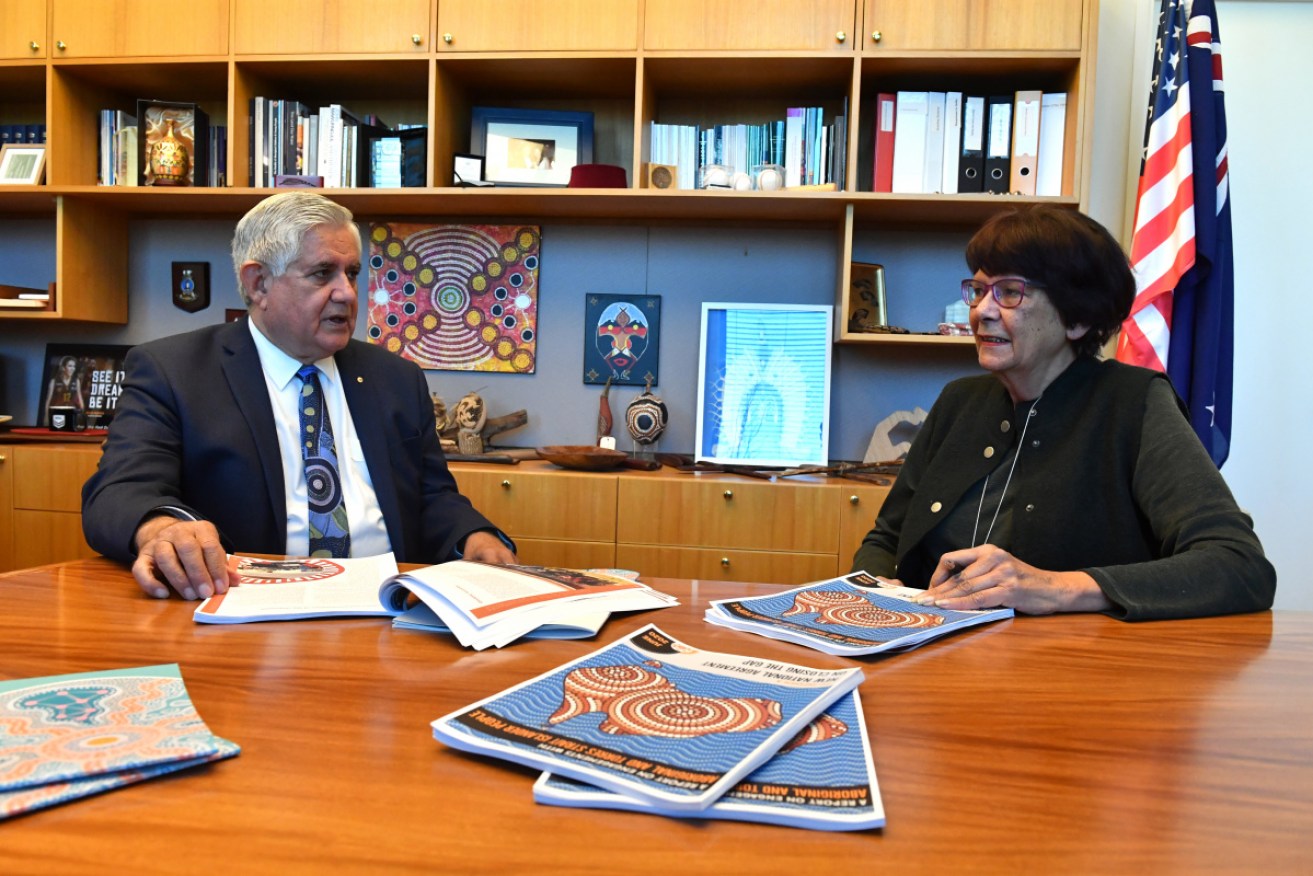‘Shared decision making with First Nations people’ at heart of Closing the Gap agreement

Minister for Indigenous Australians Ken Wyatt and Pat Turner discuss Closing the Gap in Canberra on July 3. Photo: AAP
Healthier children, lower jail rates and safer homes will be some of the targets set as governments work together to deliver on a new Closing the Gap national agreement.
The agreement, which will have specific and measurable targets to be outlined on Thursday, will drive federal, state and local programs to improve the wellbeing of Aboriginal and Torres Strait Islander people.
Prime Minister Scott Morrison said having directly negotiated the agreement with Indigenous people would ensure progress could be made on areas ranging from early childhood to employment.
“The gaps we are now seeking to close are the gaps that have now been defined by the representatives of Aboriginal and Torres Strait Islander peoples,” Mr Morrison said.
“This is as it should be. This creates a shared commitment and a shared responsibility.”
“We will keep pushing and we will hold governments to account” Pat Turner CEO of NACCHO and Lead Convenor of the Coalition of Peaks.
Today in the Koori Mail, read what Pat Turner has to say about the new National Agreement. https://t.co/6U8HNmMjRC pic.twitter.com/lO0LbH1Kh5
— Coalition of Peaks (@coalition_peaks) July 29, 2020
Indigenous Australians Minister Ken Wyatt said the best outcomes came when Aboriginal and Torres Strait Islander Australians were equal partners with governments.
Pat Turner, the lead convenor of the Coalition of Peaks, said Indigenous people wanted to have a direct say on how things should be working in their communities.
“If the priority reforms are implemented in full by governments and through shared decision making with First Nations people, we should see changes over time to the lives and experiences of our people,” she said.
The agreement comes into effect on Thursday, having been signed by federal, state and territory leaders, Ms Turner and the Australian Local Government Association.
Released today! A Report on Engagements with Aboriginal and Torres Strait Islander people to inform a new National Agreement on Closing the Gap.
Download your copy to read what our people said is needed to help close the gap!https://t.co/eYSc9Paixv#CoP #CoalitionofPeaks pic.twitter.com/uFSW4NbII7
— Coalition of Peaks (@coalition_peaks) June 23, 2020
The agreement’s four priority reforms are:
- Strengthening and establishing formal partnerships and shared decision-making
- Building the Aboriginal and Torres Strait Islander community-controlled sector
- Transforming government organisations so they work better for Aboriginal and Torres Strait Islander people
- Improving and sharing access to data and information to enable Aboriginal and Torres Strait Islander communities make informed decisions.
There will also be 16 specific national socio-economic targets tracking progress in improving life outcomes.
Each party to the agreement will develop implementation plans in the next 12 months.
The Productivity Commission will deliver a progress report every three years and there will be an Indigenous-led review of how changes are affecting communities.
Annual reports on actions taken by all parties will be published and tabled in parliaments.
Target Areas
- People enjoy long and healthy lives
- Children are born healthy and strong
- Early-childhood education is high quality and culturally appropriate
- Children thrive in their early years
- Students achieve their full learning potential
- Students reach further education pathways
- Youth are engaged in education or employment
- Strong economic participation and development
- People can secure appropriate and affordable housing
- Adults are not over-represented in incarceration
- Young people are not over-represented in detention
- Children are not over-represented in out-of-home care
- Families and households are safe
- Social and emotional wellbeing
- People maintain distinctive relationships with land and waters
- Cultures and languages are strong.
-AAP








